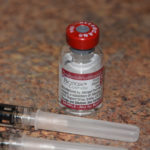Any drug that can change facial expressions can certainly influence how other people see and interpret you. But can they also change how you feel as well?
In the June 2010 issue of Emotions, researchers out of New York published a paper which reported that people who were treated Botox treatments not only change their appearance but may also had a weakened ability to experience emotions.
The facial feedback hypothesis (FFH) in psychology has long purported that if an emotion can not be expressed physically then it really doesn’t exist. It has remained largely an unproven theory as it is difficult to isolate an emotion as a physical loci. But the widespread use of Botox, a muscle weakening agent used for cosmetic wrinkle reduction, can suppress emotion by its effect on facial muscle units. This now makes it possible to work with people who have a chemically-induced expressive muscle weakness.
As a result, the theory of FFH can be tested for the first time. A person who has received treatment with Botox can still respond to an emotional event (something that makes them angry) but their facial muscles will be less active. Less muscle stimulation to the brain results with less feedback to the brain about what the face is expressing. This allows for a test of whether facial expressions and the feedback to the brain that it creates can influence our emotions.
The reported study used two groups of patients, one who got Botox injections and a control group which received a cosmetic filler (Restylane) which does not affect the facial muscles. Such a study design allows one to isolate the effects of facial expression and the subsequent sensory feedback to the brain that would follow from other factors, such as intentions relating to one’s expressions and motor commands to make an expression. In the study, the subjects filled out questionnaires about how they felt after watching positive and negative video clips before and after treatment.

Considering the number one reason people have Botox is to decrease the frowning or scowling between their eyebrows, this may also help people feel less angry and irritated. So maybe Botox, and its cousins Dysport and Xeomin, really are tranquility drugs as well.
Dr. Barry Eppley
Indianapolis, Indiana


